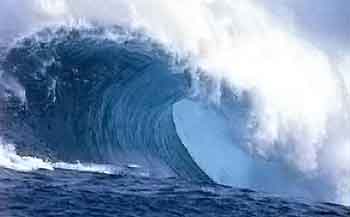Apa yang dimaksud dengan Perils of the seas v Perils on the seas ?
Istilah “Perils of the seas” dapat ditemukan di Marine Insurance Act 1906 antara lain sbb:
“Maritime perils” means the perils consequent on, or incidental to, the navigation of the sea, that is to say, perils of the seas, fire, war perils, pirates, rovers, thieves, captures, seisures, restraints, and detainments of princes and peoples, jettisons, barratry, and any other perils, either of the like kind or which may be designated by the policy.
The term “perils of the seas” refers only to fortuitous accidents or casualties of the seas. It does not include the ordinary action of the winds and waves.
The term “perils of the seas” is deemed to include sinking, capsizing, heavy weather, grounding, stranding and contact of the ship with any substance other than water.
Perils of the seas atau bahaya dari laut berhubungan dengan peristiwa yang terjadi tiba-tiba, tidak terduga, atau peristiwa yang tidak tertentu di laut, yang tidak mengandung pengertian kejadian biasa (normal). Contohnya, kejadian biasa yang diakibatkan oleh angin dan gelombang tidak merupakan bahaya dari laut (perils of the seas) karena kejadian itu memang pasti terjadi selama pelayaran. Perils of the seas dapat mengakibatkan kapal tenggelam (sinking), terbalik (capsizing) terdampar (stranding), kandas (grounding), dan tubrukan dengan objek lain selain air (contact of the ship with any substance other than water) dan lain-lain yang mungkin terjadi yang diakibatkan oleh keganasan gelombang laut atau angin topan.
Perils on the seas atau bahaya di laut adalah bahaya yang bukan diakibatkan oleh keganasan gelombang atau angin topan tetapi bahaya yang di akibatkan oleh kebakaran (fire), perang (war perils), pembajakan (pirates), perompakan (rovers), pencurian (thieves), penangkapan (captures), penahanan oleh pejabat berwenang, penguasa atau penduduk (seisures, restraints, and detainments of princes and peoples), pembuangan muatan atau bagian kapal ke laut (jettisons), pemberontakan awak kapal (barratry), dan bahaya-bahaya di laut lainnya (and any other perils).
Dalam buku “Cargo and goods in transit insurances” P90 JC Potter dapat ditemukan pembagian kategori risiko dalam Marine Insurance menjadi (1) Natural perils of the sea, (2) Unnatural perils of the sea, dan (3) Loss or damage during land transit.
Natural perils of the sea such as storms, lightning, snow, ice, fogs, heavy weather, tides, rocks, sandbanks, volcanic eruptions and undersea earthquakes and tsunami.
Unnatural perils of the sea include fire, piracy, war, theft, capture, barratry, and handling damage
Loss or damage during land transit such as theft, road traffic accidents, hook or handling damage, riots, strikes, etc
Beberapa definisi perils lainnya yang dapat ditemukan di Marine Insurance Act 1906
Pirates.
The term “pirates” includes passengers who mutiny and rioters who attack the ship from the shore.
Thieves.
The term “thieves” does not cover clandestine theft or a theft committed by any one of the ship’s company, whether crew or passengers.
Restraint of princes.
The term “arrests, &c., of kings, princes, and people” refers to political or executive acts, and does not include a loss caused by riot or by ordinary judicial process.
Barratry.
The term “barratry” includes every wrongful act wilfully committed by the master or crew to the prejudice of the owner, or, as the case may be, the charterer.
All other perils.
The term “all other perils” includes only perils similar in kind to the perils specifically mentioned in the policy.
Stranded.
Where the ship has stranded, the insurer is liable for the excepted losses, although the loss is not attributable to the stranding, provided that when the stranding takes place the risk has attached and, if the policy be on goods, that the damaged goods are on board.
Ship.
The term “ship” includes the hull, materials and outfit, stores and provisions for the officers and crew, and, in the case of vessels engaged in a special trade, the ordinary fittings requisite for the trade, and also, in the case of a steamship, the machinery, boilers, and coals and engine stores, if owned by the assured.
Freight.
The term “freight” includes the profit derivable by a shipowner from the employment of his ship to carry his own goods or moveables, as well as freight payable by a third party, but does not include passage money.
Goods.
The term “goods” means goods in the nature of merchandise, and does not include personal effects or provisions and stores for use on board.
In the absence of any usage to the contrary, deck cargo and living animals must be insured specifically, and not under the general denomination of goods.
Semoga bermanfaat,
Ditulis dari berbagai sumber oleh Imam MUSJAB
